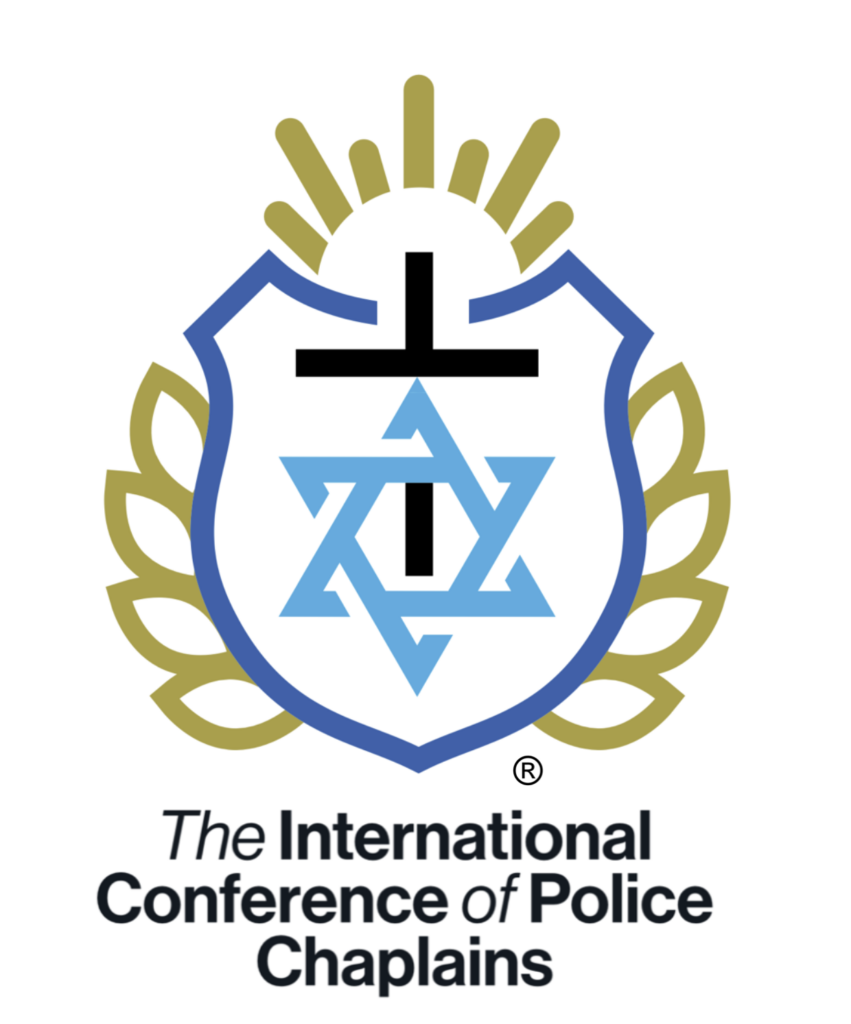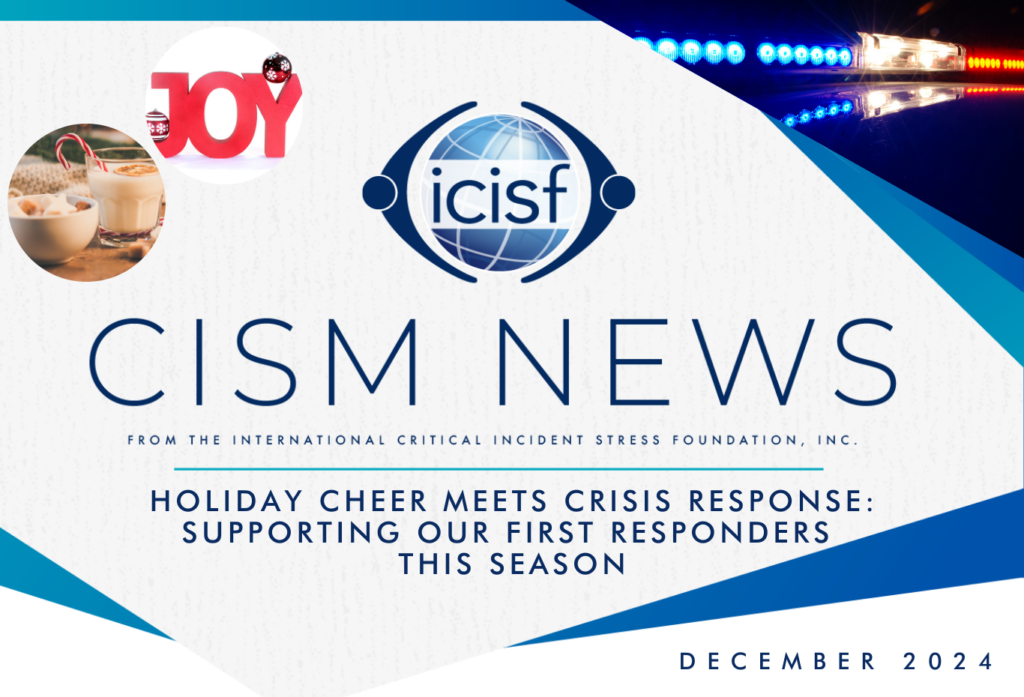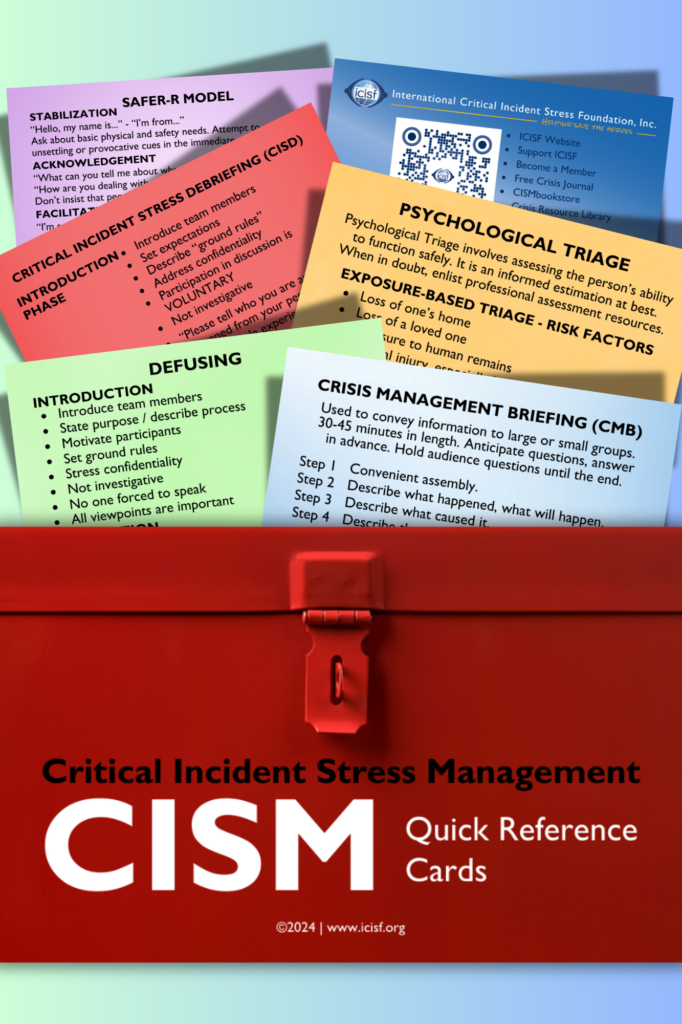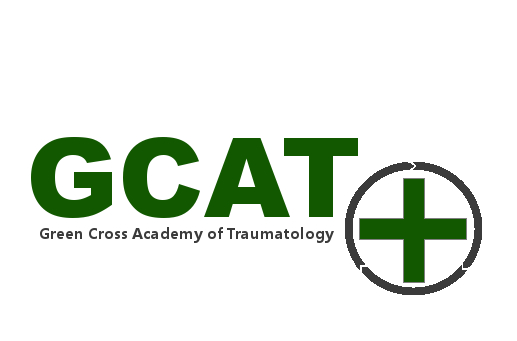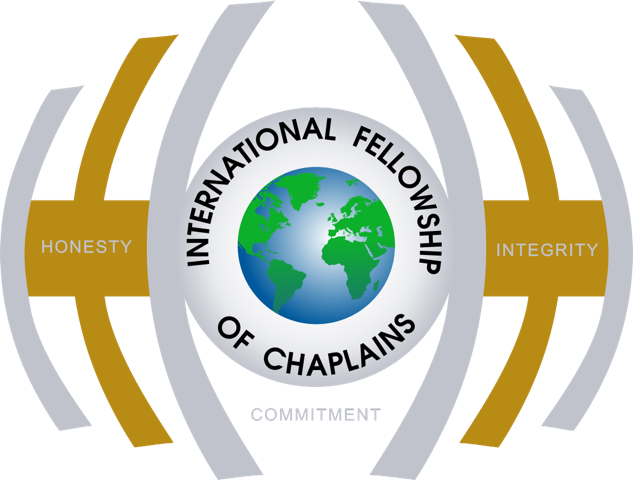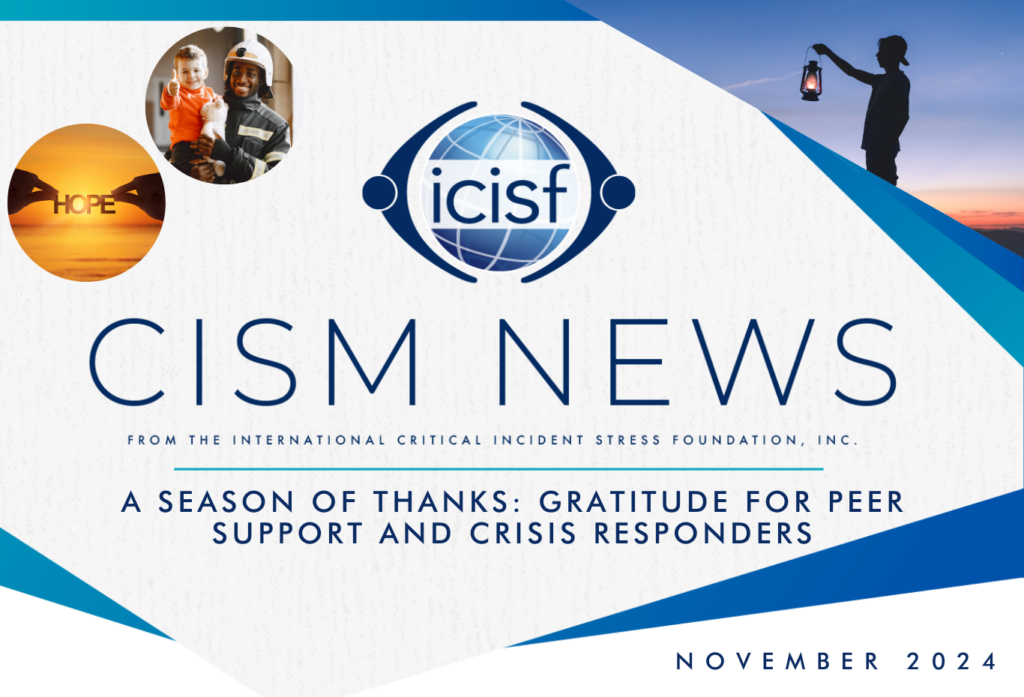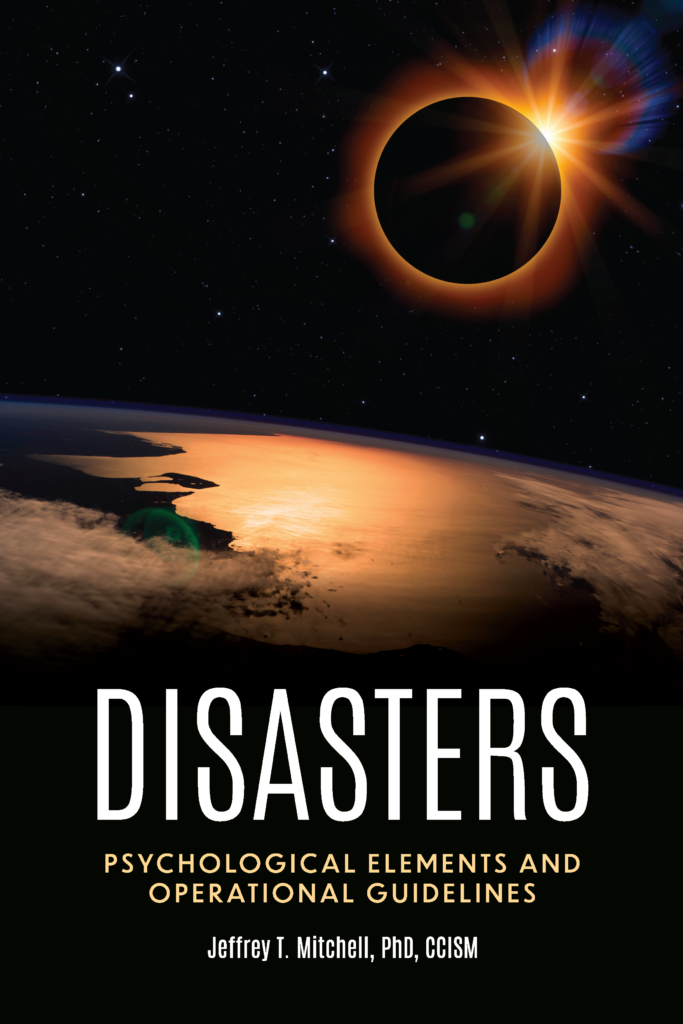Critical Incident Stress Debriefing Has No Expiration Date
A Story of Hope and Healing
By: Fuzzy Lake, MDiv, CPC, CGW, CCISM, CRTS & Christine (Babin) Villanueva
My name is Fuzzy Lake, and I have been involved in group crisis intervention since 2005. I’ve been an approved instructor in this model since May of 2011. I have taught many in person Group Crisis Intervention and Assisting Individuals in Crisis (GRIN) classes and began teaching the GRIN virtually in 2020. Until recently, I was also working full-time as a Spiritual Care Coordinator at a 36-bed hospice facility.
However, this article is not about me, rather I wanted the reader to have some perspective on how long I have been teaching and using this model. This article is about the Villanueva family, who I met in 2014. They helped me see that the Critical Incident Stress Debriefing (CISD) can transcend time and, in my opinion, has no expiration date.
In the early days of crisis intervention, CISDs were thought to be very limited in effectiveness, if not applied to the affected group within 24 to 72 hours (about 3 days). In some special cases, you could postpone the CISD, up to seven to ten days, or even as long as three to four weeks, if conducting it after a disaster. After that time period, it was thought that the CISD would be mostly ineffective since the trauma would have become “entrenched”, and the participants would need to be referred to a licensed mental health professional.
I am a stickler about doing things by the book and Critical Incident Stress Management (CISM), along with the CISD, is a proven intervention that works very well. I know this and believe this to be true, not only because of my training in this model, but also through my experiences of personally facilitating hundreds of CISDs.
In February of 2014, I was in the Philippines, where I spent three weeks in Manila, teaching approximately 125 individuals that were either part of the Bureau of Fire Protection, the Bureau of Prisons, EMTs, or the Bureau of Police. This was not only my first time teaching these individuals, but I was also able to spend some time with their newly formed CISM team, and I was able to facilitate CISDs for several large events that had occurred before and after my arrival.
I returned to Manila the following February and was met at the airport by my liaison and her driver to transport me to my hotel, after a visit to a local fire station. I was there to meet some firefighters that I had trained the year before. The conversation we had in the Bureau of Fire Protection van that day was the start of why I am writing this article. My liaison told me that she wanted me to facilitate a CISD for a family of three. A 23-year-old female firefighter by the name of “Donna Rose Villanueva”, a 21-year-old male, “Christopherre Jhon Villanueva”, and a seven-year-old female “Christine Villanueva”. You can imagine my surprise when she gave me the ages of the participants in the CISD she wanted me to facilitate. I quickly reminded her that children were strictly prohibited in any CISD, and that this young girl should be referred.
The next question, to my liaison, was when the event occurred and what had happened. She proceeded to tell me that on June 23, 2014, while Donna, the oldest child, was away at training, and Christopherre was at the pastry store, Christine, who likes to be called by her nickname, “Babin”, was in the garage with her mom. The father went into the garage and shot the mother, He then went in the house, locked himself in the bathroom, and shot himself. Prior to all this taking place, dad had locked the garage gate so that Christopherre could not get back in to assist when he returned from the pastry store.
The shot to the mother was not fatal, however she was seriously wounded. She was able to instruct her youngest child, Babin, to go into the house to get the key for the gate to the garage so that her brother, who had now returned, could get in to help. Babin was scared to go back into the house. She did not know whether her dad was alive or dead and she did not want him to shoot her. The key she needed to unlock the gate was in her dad’s pocket. Christopherre was able get some people to help him pry the gate open and got an ambulance to come and help. They found the father deceased in the bathroom. He had been a career fire fighter and was drinking at the time of the shooting. The mother died 2 ½ months later in the hospital on Sept. 5, 2014.
It had been almost eight months since the event (shooting) and six months since the mother had died. The liaison wanted me to do a CISD with this family? I empathically said no.
My liaison went on to tell me that the little girl had not spoken to anyone since the event, and that if they could find a therapist, it would take an entire year’s salary to pay them. I could see the angst in her eyes, but I said no a second time. From my perspective and training it had been too long, children were involved, and there were so many other variables. There was a good chance that we would make it worse. I said no a third time.
Then my dear liaison began to cry. Not just a tear in her eye, but full-on crocodile tears with snot to go along with them. She said Babin’s teacher told her that they tried art therapy and the only color the little girl would use was black. No other color. Then this 45-year-old veteran female fire fighter/EMT began to cry even harder. She might have known how to get to me!
Reluctantly, I found myself saying if we were going to do this, then I had to have complete control over how the CISD was going to go and how we would be involved. Mind you, I would not think about doing this CISD, at this late date and with a child involved, had this event occurred in the United States. I would have referred the family, without question! I told my liaison that I wanted a quiet room where we would all meet and not be disturbed, and that I wanted to hand pick the person that would help me. I would be the facilitator, and I wanted the person that would assist me to be someone who I had trained the year before. In my opinion, that person needed to be a woman, and I had to be sure she was competent of the task.
I met with my helper and Donna (older sister) before we started, so that I could set the parameters and put a plan in place should any issues arise, at any point, during the CISD. I didn’t want us to be rushed, so we set up a three-hour window for the CISD. I instructed my helper on where I needed her to sit as well as where the other participants would be sitting. I shared with both that at any time during the CISD, if I thought anyone was having trouble, that we could not get out of, we were going to stop and that would be the end of the CISD.
Before I tell you how it went, I want to share with you a picture of the family.

The family met me in a room off the fire station at our prearranged day and time. The brother, Christopherre, sat to my right, then my helper, the oldest sibling, Donna then the little girl, Babin. After we all sat down, I spent the next ten minutes explaining, in great detail, exactly what we were going to be doing, so that Babin, and the rest of the family understood completely. I told them that we were going to be there for as long as it took. There was no time limit, and we were not going to rush things. We would not be taking any breaks, and all information would be helpful. I explained that there might be some detail(s) that they shared openly that might be helpful for their siblings to hear. I asked them to be honest and open.
Remember, I told you earlier that this little girl had not spoken to anyone since her dad shot her mom in front of her, and then shot himself.
The first CISD question. Tell me who you are and what happened from your perspective? Christopherre shared first. He had been sent to the pastry store. He could not get back in the yard when he got back. Donna, who was away at training, shared that she had to take care of all the details at the hospital as well as the funeral for dad. It was now Christine’s turn to answer the first question. I looked at her and said, Christine (Babin), would you like to tell me what happened the way you saw it? She then began to share, in great detail, I might add, exactly what happened that ill-fated afternoon. It took her about 20 minutes to share the entire story as it unfolded. This was the first time anyone had heard it from her perspective since it happened. The siblings openly shared during each CISD phase, but most importantly, this little girl shared in exhaustive detail, age appropriate of course, everything that she remembered. This was the first time she had spoken since the event!!!
When we got to the symptom phase, I not only asked Babin those questions, but I also asked her to tell me why she had not shared this before. Babin told us that everyone had asked her if she was okay. No one had thought to ask her to tell them what happened. I suppose looking back, and having 20/20 hindsight, everyone was probably afraid to ask her, thinking that would make the trauma that much worse.
Babin also shared that the doctor had told her that her mom would be coming home from the hospital to the family, but that never happened. You can imagine how upsetting this would be for any child, however, especially at the tender age of seven. The death of her mother was devastating and upsetting to her.
The CISD for this family took about two and a half to three hours. When we were done, I asked one of the fire fighters to get me a piece of paper and a box of crayons. I gave them to Christine and asked her to draw me a picture of her house. Below is that picture, just as she drew it that day, along with a recent picture of Christine.


We have kept in touch over the last ten years, and because it is the ten-year anniversary of the event that changed her life forever, I thought it would be fitting to have her tell you about that day from her perspective.
I hope the take-away for anyone that teaches CISM is to trust the process and know that trauma doesn’t always follow an outline or time frame. Christine wants everyone to know her family’s story so you can know that there is room for hope and healing in all situations and timeframes. Below is an email she sent me after reading what I wrote and approving it.
Here is what Christine thinks/felt, in her own words.
“Hi, I’m Christine Villanueva and I’m 17 years old. I was 7 years old when the most traumatic tragedy happened in my life. What was supposed to be a normal day turned out to be the day that would change my life. I never thought that my biggest nightmare would turn into reality. My parents are my biggest inspiration of my life, I look up to them. I admire their bravery and strength in keeping our family happy and healthy. Looking back before the incident happened, I remember my parents asking me what I want to be when I grow up and I answered “Doctor, I want to be a doctor so I can take care of Mama and Papa.”
But then this tragedy happened and until now I still question everything, “What will I do, now that my inspiration on becoming a doctor is gone?” “What’s the point of becoming a doctor if I can no longer take care of my parents?”
It was so tough growing up without them by my side and I still regret not having the chance to tell them everything before they were gone. Good thing I have my relatives, they have always been there for me. Supporting me, taking care of me, loving me, and assuring me that I can lean on them anytime. I’ll forever be thankful to have a family like them.
February of 2015, 8 months after the incident, my sister told me that we’ll go to a fire station, and we will be meeting someone. I had no idea what was going on, but I went along. As we arrived at the fire station we were greeted by my sister’s well-known friend and then escorted to a room. As my sister, brother, and I sat we were told to wait for a few minutes.
There goes a foreigner man entering the room greeting us with a smile. Being a kid and confused, I was so shy about meeting a stranger, but then I also greeted him with a smile. He introduced himself and told us we can call him “Fuzzy.” Fuzzy explained everything. He explained why we were at that room and the things we were going to do. He then asked each of us to introduce ourselves and how old we are. My siblings and I got time to talk to Fuzzy alone together so we can have our personal time to express our thoughts and feelings regarding the incident.
As soon as we reached the end of the meeting, Fuzzy asked me if I could draw him a picture of my family and our house which the picture was shown above. Wherein I put Papa on the roof signifying that he’s my hero and that no matter what happens, he will protect our family. There you can also see my brother, sister, and our family dogs. I drew myself and Mama watering the plants outside because Mama loves her plants.
I am now currently in my Senior year of high school and off to college next year. It’s been 10 years since the incident that changed my life happened. It’s also been 9 years since Fuzzy and I met, he’s still in contact with us and has been constantly checking on us which to my surprise is incredible. Fuzzy has helped us, especially me so much, when I heard that he will be writing an article about my family’s story I was speechless (But also happy). I couldn’t believe that one day I would get to tell my family’s story to everyone around the world. I am forever grateful for the help Fuzzy has given us.
I want to let everyone know that healing takes time. Some of us may find healing is hard to do or impossible to happen. But no, it is possible, you just have to embrace the pain and grief that you feel in order to let out everything and heal. I always think to myself that everything happens for a reason which it does, some of us are just in denial to accept because of the pain we feel. Life isn’t always rainbows and cupcakes, there will always be the toughest challenges in your life.
I hope my family’s story helps you, just keep on fighting! Everything will be alright in time.
Like what my favorite quote says, “Every sunset is an opportunity to reset” -Richie Norton” (End Quote)
Thanks for reading. Feel free to share. Christine wants everyone to know that there is no reason that we cannot use this tragedy for good. If you would like to reach out to Christine, please shoot me an email and I will get you in touch with her. [email protected]

